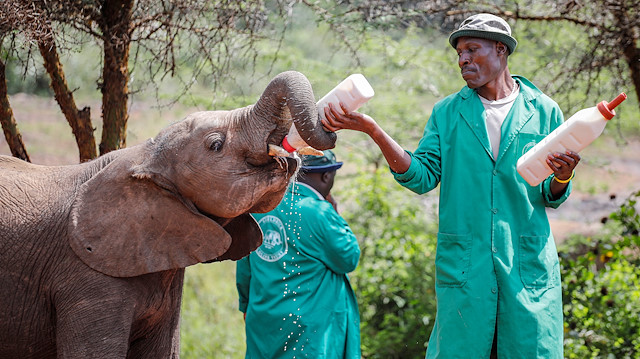
A wildlife preserve in southern Kenya renowned for its stunning views of Mt. Kilimanjaro now has a new claim to fame: An elephant baby boom.
Since the start of the coronavirus outbreak earlier this year, Amboseli National Park has seen a record 140 newborn pachyderms welcomed into the world.
“Greetings from Amboseli Kenya,” said Kiiru in a statement.
“It has been a difficult year for all of us but there is still much to celebrate. Here in Amboseli, elephants are thriving. 140 beautiful calves have been born in 2020 and more are expected.”
Twin baby elephant calves are among those registered in the record tally by park officials.
Amid a dearth in tourists, the Kenya Wildlife Service has seen a spike in poaching of wildlife for game meat.
Cynthia Moss, director of the Amboseli Trust for Elephants, told local media, “It seems baby elephants are falling out of the sky. The ability of a female to conceive and carry a calf to term depends greatly on her own physical condition.
“During drought years, females may stop all reproductive cycling until rainfall improves, resulting in vegetation growth.”














